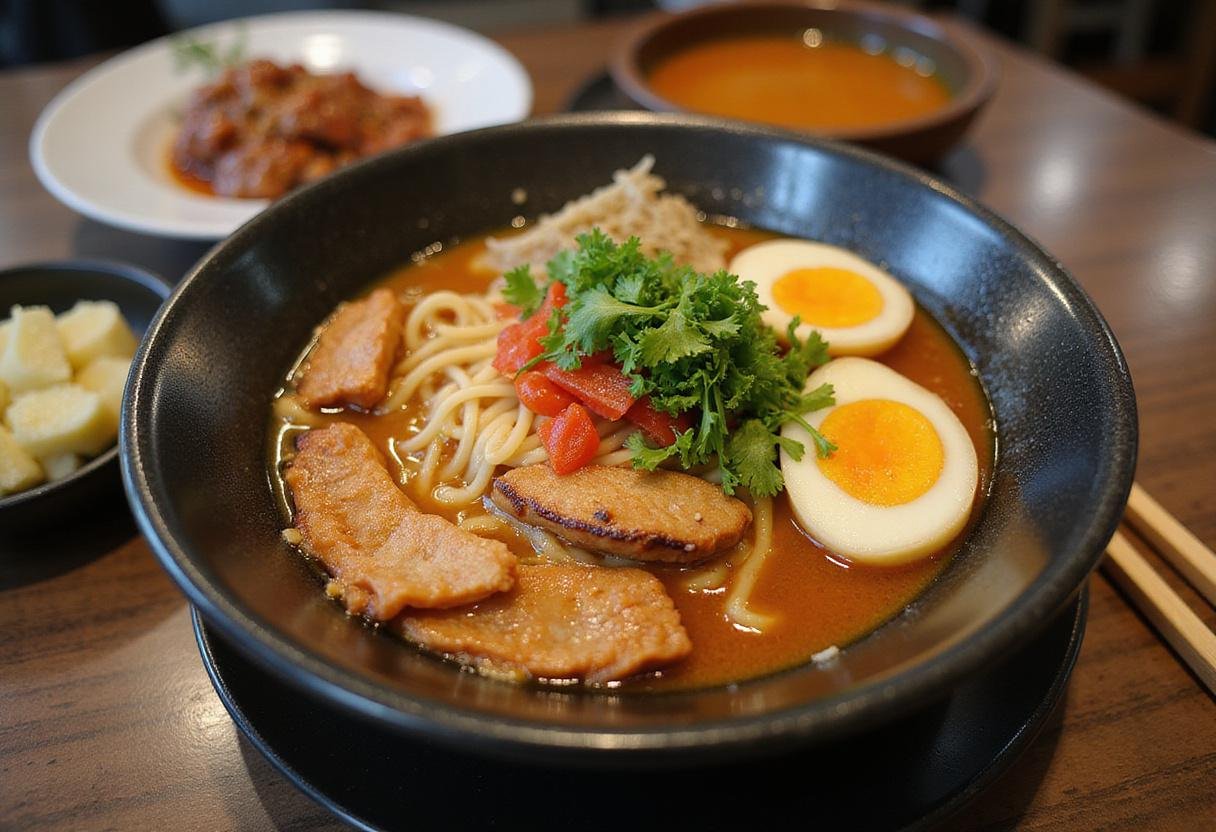Ramen Shelf Life Facts: Everything You Need to Know About Your Favorite Noodles 🍜📅✨
1. Introduction
Ramen noodles have captured the hearts (and stomachs) of many across the globe. Their convenience and deliciousness make them a pantry staple. But have you ever wondered, do ramen noodles go bad? Understanding the shelf life of ramen is essential to ensuring you enjoy their optimal flavor and safety. In this article, we’ll dive into the longevity of ramen noodles, exploring whether does ramen expire and what steps you can take to store them properly. Let’s unravel the mystery of ramen shelf life! And if you’re looking for something different after your ramen, why not try a Nutritious Hawaiian Roll for a delightful treat?
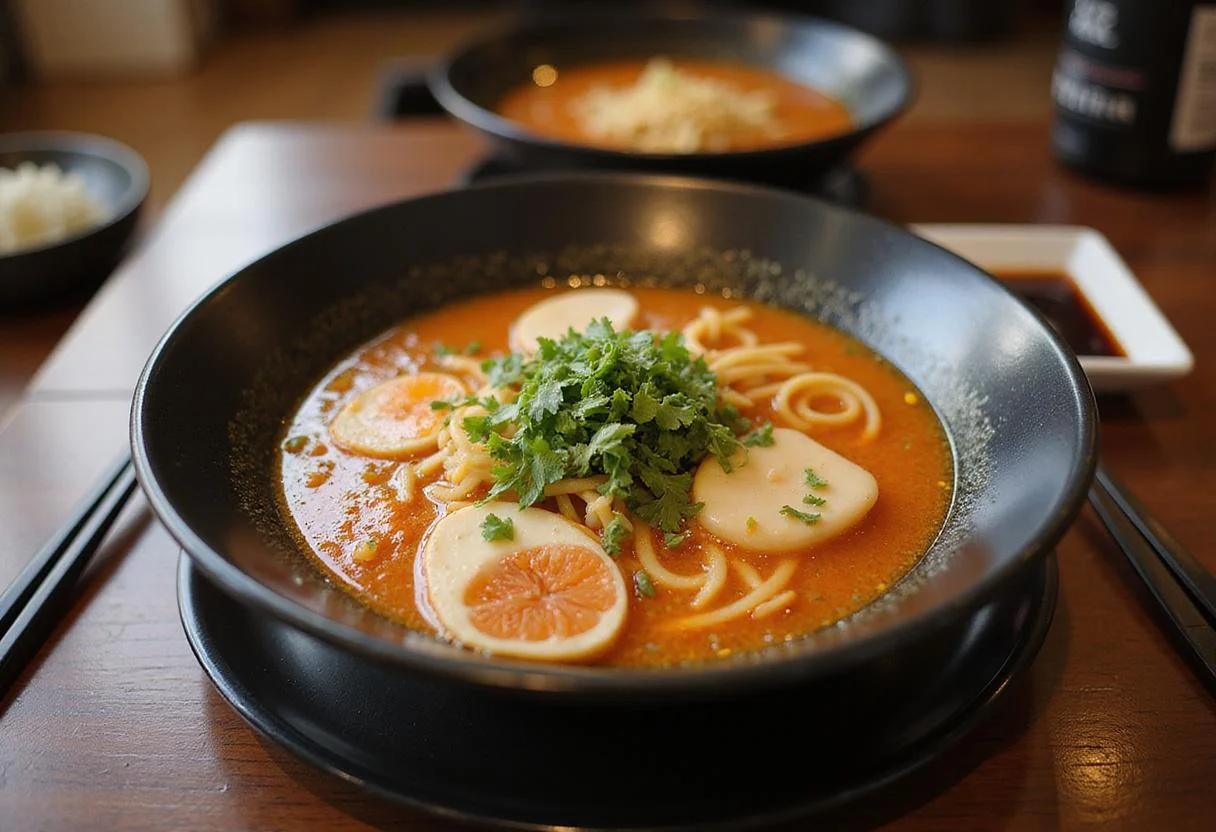
2. Understanding Ramen Shelf Life
To answer the question of do ramen noodles go bad, we need to consider factors such as types of ramen, packaging, and storage conditions. Instant ramen can be stored for a long duration, but once cooked, the rules change. Properly understanding these factors helps to prevent food waste and ensures you’re always enjoying your ramen at its best. For those interested in delving deeper, this resource offers additional insights into ramen longevity.
3. Step-by-Step Guide
Step 1: Check the Expiration Date
Before diving into your ramen stash, always check the expiration date printed on the packaging. This date provides guidance on the optimal time to enjoy your noodles. Note that this is a “best by” date; while the ramen might still be safe to eat after this date, the quality may diminish. Craving a sweet treat? Check out these Sweet Glazed Apple Fritters.
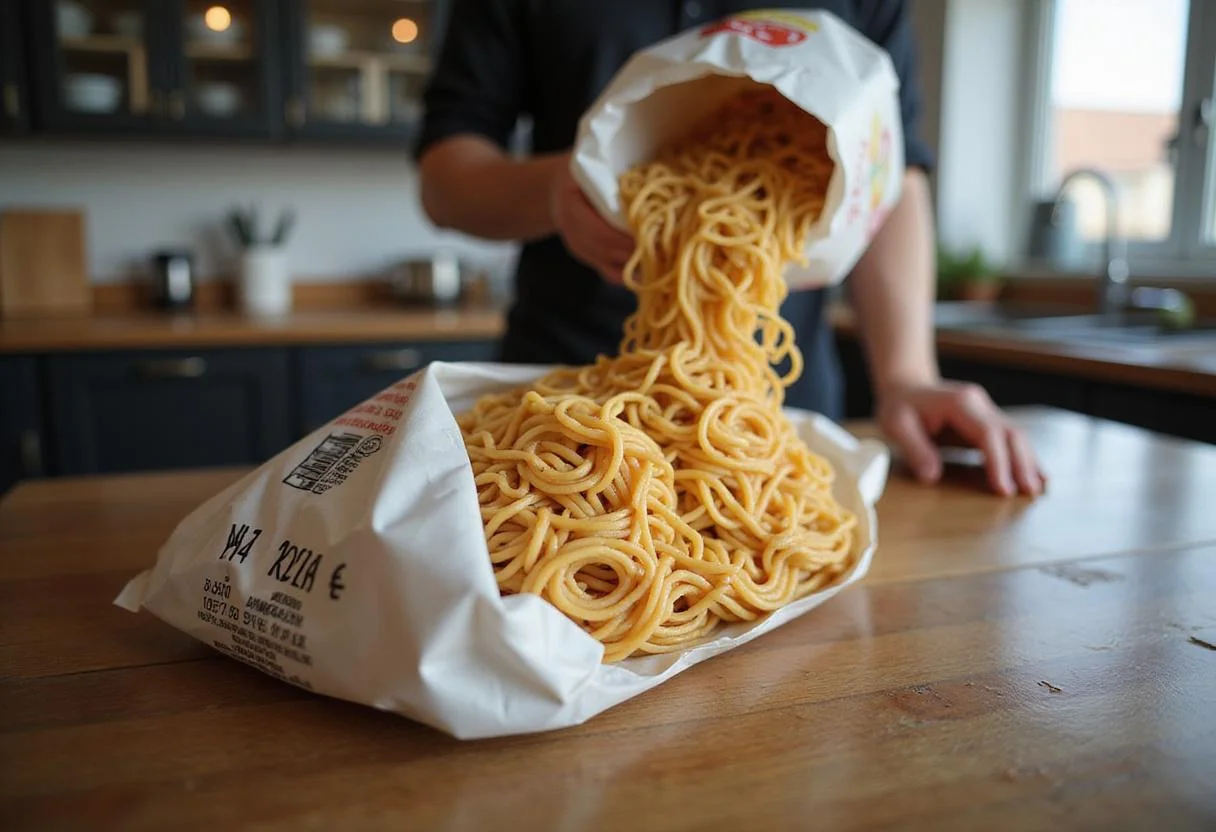
Step 2: Proper Storage of Cooked Ramen
If you find yourself with leftover cooked ramen, it’s crucial to store it properly. Place the noodles in an airtight container and refrigerate them. This helps determine does ramen expire after cooking. Consume within 1-2 days to ensure optimal taste and prevent bacterial growth. If you’re looking for a refreshing alternative to ramen, consider trying a Zesty Tangy Chili Lime Treat.
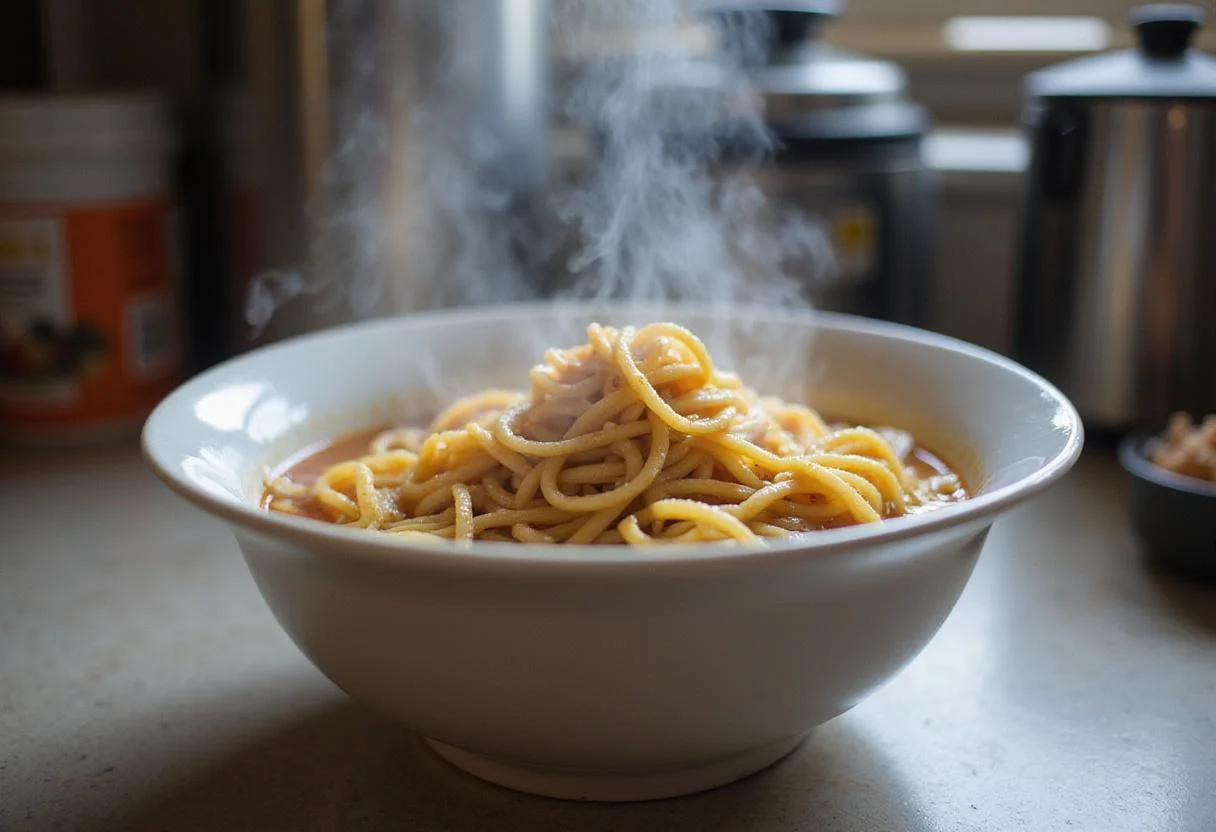
Step 3: Exploring Ramen Packages
The type and packaging of ramen largely determine its shelf life. Instant ramen in a sealed package can last for months or even years, while fresh ramen requires more careful monitoring. Learn about the different types to see how each affects longevity. Consider the difference between air-dried and fried ramen noodles when assessing their possible lifespan. And if you have a pizza craving, why not indulge in a BC St. Ignace Pizza?

Step 4: Enjoying Fresh Ramen
Cooking fresh ramen with quality ingredients is a delight! However, once prepared, consume it within a day or two for the best taste and safety. Always check for any signs of spoilage before digging in. Look for any unusual smells, changes in texture, or discoloration. This is especially important to avoid any foodborne illnesses. If you’re in the mood for baking, perhaps some Moist Delicious Zucchini Bread would be a perfect complement.
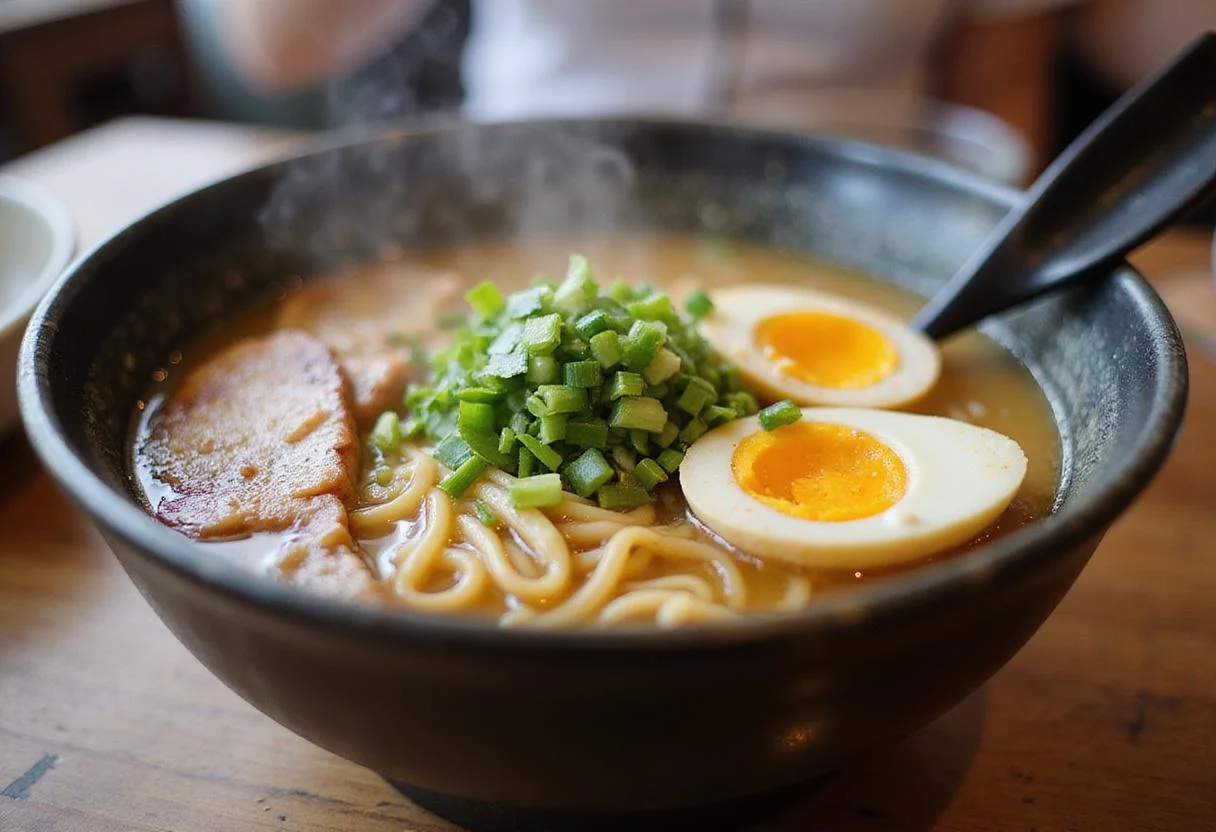
4. FAQs about Ramen Shelf Life
- Do ramen noodles go bad? Yes, but uncooked instant ramen can last for a long time. Cooked ramen should be eaten within a few days when stored properly. Understanding the expiration date is key to knowing if do ramen noodles go bad.
- Does ramen expire? Ramen doesn’t ‘expire’ in the traditional sense, but it can lose flavor and quality over time. The term “best by” is more accurate, indicating when the ramen is at its peak. Thinking of a different dinner? Giant Dinosaur Beef Ribs Feast is definitely a crowd pleaser.
- How should cooked ramen be stored? Store cooked ramen in an airtight container in the refrigerator to maintain freshness. This prevents the noodles from drying out and inhibits bacterial growth, helping you understand if does ramen expire quicker if not stored at the right temperature.
5. Conclusion
In summary, understanding the shelf life of ramen noodles is essential for both safety and taste. Knowing the best storage practices and when to consume can help you cherish every bowl without concern. So the next time you reach for ramen, you’ll have all the necessary knowledge to ensure a delicious experience! Still hungry? You can find other recipes here. And finally, remember always to enjoy your ramen responsibly and be mindful of those expiration dates to prevent any potential issues!
“`
Print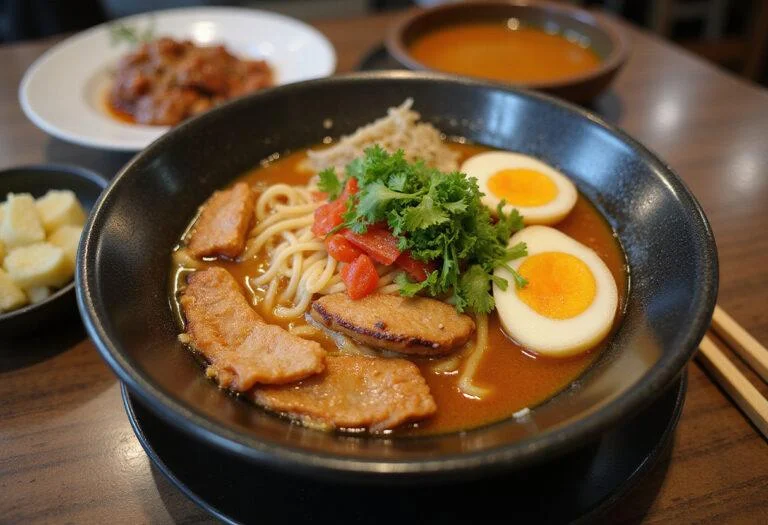
Ramen Shelf Life Facts
Discover everything you need to know about ramen shelf life, including how to store, what affects its longevity, and tips for enjoying your favorite noodles safely.
- Total Time: 10 minutes
- Yield: 1 serving 1x
Ingredients
- Instant ramen noodles
- Fresh ramen noodles
- Airtight containers for storage
Instructions
- Check the expiration date on your ramen packaging before consuming.
- Store leftover cooked ramen in an airtight container in the refrigerator.
- Different packages of ramen have varying shelf lives; learn about them!
- Consume fresh ramen within one to two days for optimal taste.
Notes
- Uncooked instant ramen can last for a long time if stored properly.
- Cooked ramen should ideally be eaten within a few days if refrigerated.
- Ramen doesn’t typically ‘expire’ but can lose flavor and quality over time.
- Prep Time: 0 minutes
- Cook Time: 10 minutes
- Category: Noodles
- Method: Boiling
- Cuisine: Japanese
- Diet: Vegetarian
Nutrition
- Serving Size: 1 bowl
- Calories: 380 Kcal
- Sugar: 2g
- Sodium: 1500mg
- Fat: 14g
- Saturated Fat: 5g
- Unsaturated Fat: 9g
- Trans Fat: 0g
- Carbohydrates: 54g
- Fiber: 2g
- Protein: 10g
- Cholesterol: 0mg

